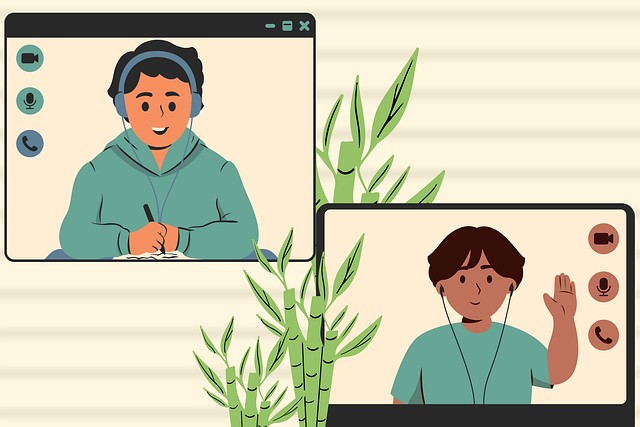Virtual couples counseling offers accessible support, but presents challenges like limited non-verbal cues. Effective sessions utilize video conferencing, clear communication, active listening, and interactive activities to rebuild trust despite geographical barriers. Secure platforms, therapist guidance, and tools like journaling exercises and app-based trackers enhance engagement and transparency in digital relationships.
In today’s digital age, virtual couples counseling has become an essential tool for rebuilding trust. As remote interactions reshape relationships, understanding how to foster healthy trust in online spaces is crucial. This article explores the unique challenges and strategies of virtual trust rebuilding within counseling contexts. We delve into the impact of digital communication on interpersonal trust, providing insights into effective session management, overcoming common obstacles, and implementing tools to promote lasting trust in remote partnerships.
- Understanding Virtual Trust Rebuilding in Couples Counseling
- The Impact of Digital Communication on Trust
- Strategies for Effective Virtual Sessions
- Overcoming Challenges in Online Trust Restoration
- Tools and Techniques for Long-Lasting Trust in Remote Relationships
Understanding Virtual Trust Rebuilding in Couples Counseling

In today’s digital age, couples counseling has evolved to incorporate virtual sessions, offering a convenient and accessible approach to support relationships. Virtual trust rebuilding is a crucial aspect of this process, focusing on mending broken connections and fostering new levels of intimacy and security. Through online platforms, counselors create a safe space for partners to communicate openly, address issues, and work collaboratively to rebuild their bond.
This innovative method allows couples to participate in counseling from the comfort of their homes, removing geographical barriers. It’s especially beneficial for those with busy schedules or limited mobility. By utilizing video conferencing tools, clients can engage in face-to-face interactions, share their experiences, and receive professional guidance. The process involves exploring underlying challenges, improving communication skills, and developing strategies to rebuild trust step by step, ensuring a more robust and resilient relationship in the virtual realm.
The Impact of Digital Communication on Trust

In today’s digital era, where couples counseling virtual sessions have become increasingly common, the impact of online communication on trust is a significant consideration. Digital communication offers accessibility and convenience, allowing couples to seek support from the comfort of their homes. However, it also presents unique challenges when it comes to establishing and rebuilding trust. The lack of face-to-face interaction can make it harder for partners to read each other’s body language, tone of voice, and facial expressions—all crucial elements in conveying empathy, understanding, and genuine connection.
As a result, virtual counseling requires heightened awareness and effort to ensure transparency and honesty. Effective digital communication involves clear, open dialogue, active listening, and the use of technology to bridge physical distances. Through secure video platforms, couples can create a sense of closeness and build rapport, fostering an environment conducive to rebuilding trust.
Strategies for Effective Virtual Sessions

In the realm of couples counseling virtual sessions, effective strategies are essential for rebuilding trust. One key strategy is active listening, where both partners feel heard and understood. Through video conferencing platforms, therapists can create a safe space, ensuring privacy and confidentiality, which fosters open communication. The use of non-verbal cues, such as facial expressions and body language, helps convey empathy and engagement, making the session more intimate despite being virtual.
Another effective approach involves setting clear goals for each session. Before starting, couples should discuss what they hope to achieve, whether it’s improving communication, resolving conflicts, or rebuilding intimacy. During the session, the therapist can guide discussions, encourage active participation, and provide tools tailored to their unique needs. Incorporating interactive activities, like joint problem-solving exercises or virtual dates, adds a dynamic element that strengthens bonds and promotes trust in a digital environment.
Overcoming Challenges in Online Trust Restoration

Rebuilding trust in a virtual setting, especially in couples counseling, presents unique challenges. The absence of face-to-face interaction can hinder open communication, a vital ingredient in fostering trust. Emotional connections often form through subtle non-verbal cues and physical proximity, which are harder to perceive or interpret virtually. This may lead to misunderstandings and mistrust if not carefully navigated.
Couples counseling platforms need to offer robust tools that promote authentic engagement. This includes secure video conferencing technologies for face-to-face interactions, text-based chat features for detailed exchanges, and even interactive elements to create a more engaging environment. Moreover, therapists play a crucial role in guiding clients through these challenges by setting clear expectations, encouraging active listening, and helping partners recognize each other’s efforts towards rebuilding trust.
Tools and Techniques for Long-Lasting Trust in Remote Relationships

In today’s digital era, maintaining trust in remote relationships can be challenging, but there are several tools and techniques available to help couples counseling virtual sessions. Video conferencing platforms, for instance, facilitate face-to-face interactions, fostering a sense of connection and understanding. Additionally, setting clear communication expectations, such as designated check-in times and agreed-upon methods for sharing sensitive information, can significantly strengthen trust.
Journaling exercises and shared digital spaces, like cloud documents or collaborative whiteboards, enable partners to document their thoughts, feelings, and goals. This transparency encourages open dialogue and helps identify potential issues early on. Furthermore, integrating technology into couples counseling virtual sessions through app-based mood trackers or relationship assessment tools can provide data-driven insights, allowing for more informed decision-making and a deeper understanding of each other’s needs.
Virtual trust rebuilding in couples counseling has become a necessary tool in today’s digital age. By understanding the impact of digital communication on trust and employing effective strategies for online sessions, partners can overcome challenges and foster long-lasting relationships. Through tailored tools and techniques, couples can navigate the complexities of remote interactions, ultimately strengthening their bond and ensuring a brighter future together.






